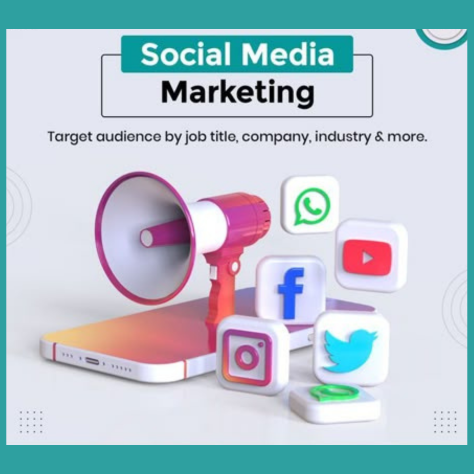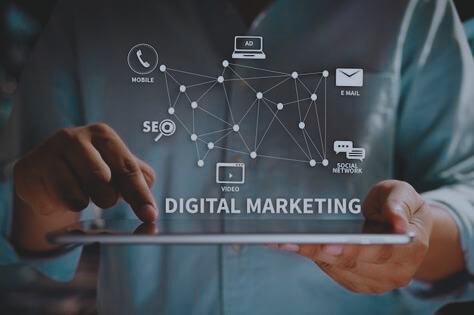Content marketing is a strategic marketing approach focused on creating and distribution valuable, relevant, and consistent content to attract and retain a clearly defined audience ultimately driving profitable customer action. Unlike traditional advertising, content are aims to provide useful information rather than directly promoting a brand.
Key Benefits of Content Marketing
Build Brand Awareness
High-quality content helps establish authority and trust.
Boosts SEO
Search engines favor fresh, relevant content, improving rankings.
Engages Audiences
Interactive and informative content keeps users interested.
Generates Leads and Conversions
Guides potential customers through the sales funnel.
Cost Effective
More sustainable than paid ads with long-term benefits.

Types of Content Marketing
Blog Posts and Articles
How-to guides, listicles, industry insights.
Videos
Tutorials, webinars, behind-the-scenes.
Infographics
(Visual data representation.
E-books and Whitepapers
In-depth resources for lead generation.
Social Media Content
Short-form posts, stories, live videos.
Podcasts
Audio content for niche audiences.
Email Newsletters
Personalized updates and promotions.
Case Studies and Testimonials
Social proof to build credibility.
Steps to a Successful Content Marketing Strategy
Define Goals
Brand awareness, lead generation or sales.
Identify Target Audiences
Create buyer personas.
Choose Account Types and Channels
Align with audience preferences.
Content Creation
Focus on quality, relevance, and SEO.
Distribution and Promotion
Use social media, email, and SEO.
Measure Performance
Track KPIs like traffic, engagement, and conversions.
Optimizing and Improving
Adjust based on analytics and feedback.
Best Practices
- ✔ Be Consistent – Maintain a regular posting schedule.
- ✔ Prioritize Quality Over Quantity – Well-researched content performs better.
- ✔ Optimize for SEO – Use keywords, meta descriptions, and internal links.
- ✔ Engage with Your Audience – Respond to comments and feedback.
- ✔ Repurpose Content – Turn blogs into videos, infographics, or social posts.
Tools for Content Marketing
- Content Creation: Canva, Grammarly, Adobe Creative Suite
- SEO & Analytics: SEMrush, Google Analytics, Ahrefs
- Social Media Management: Hootsuite, Buffer, Sprout Social
- Email Marketing: Mailchimp, HubSpot, ConvertKit.

What is Content marketing Important
✔ Builds Trust & Authority – Consumers trust brands that provide helpful information.
✔ Improves SEO – Fresh, keyword-optimized content ranks higher on search engines.
✔ Cost-Effective – More sustainable than paid ads, with long-term benefits.
✔ Drives Leads & Sales – Educated customers are more likely to convert.
✔ Encourages Brand Loyalty – Great content keeps customers engaged over time.
How Content Marketing Works
- Attract – High-quality content draws in your target audience through blogs, videos, social media, and SEO.
- Engage – Useful and engaging content keeps users interested, encouraging them to interact with your brand.
- Convert – By providing value, gently guides users toward taking action (e.g., signing up, purchasing).
- Retain – Consistent content keeps customers coming back, fostering long-term relationships.